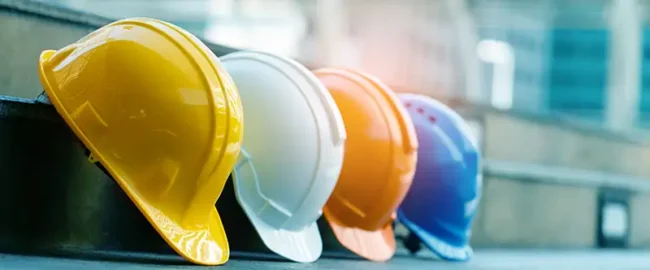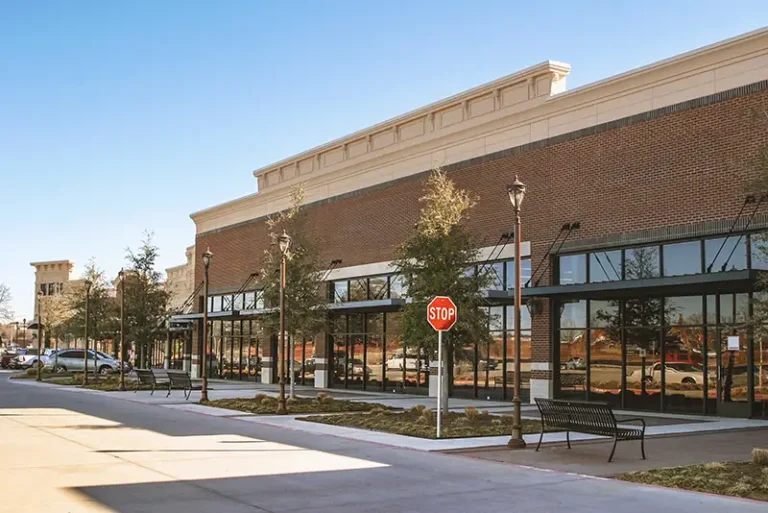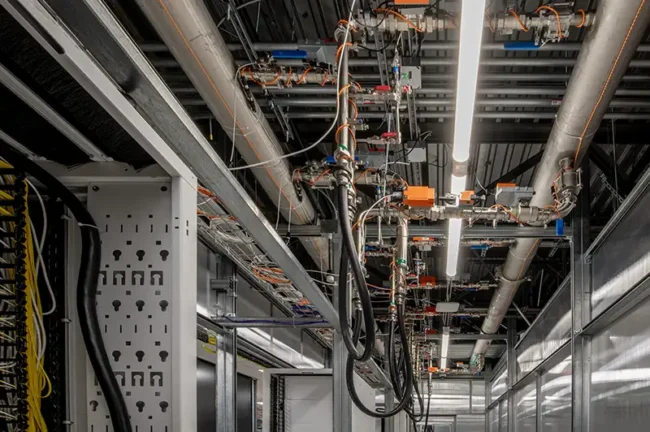Commercial vs Industrial Construction Contractor
 Commercial and industrial construction contracting are two distinct, specialized fields within the construction industry, each with unique project types, design considerations, and operational demands. While a commercial contractor focuses on creating inviting, public-facing spaces, an industrial contractor’s expertise lies in building highly functional, complex facilities for manufacturing, production, and heavy industry. This difference in purpose fundamentally shapes every aspect of the project, from site selection and design to safety protocols and regulatory compliance. RUS Industrial is just that – an industrial contractor for construction projects, including mission-critical projects.
Commercial and industrial construction contracting are two distinct, specialized fields within the construction industry, each with unique project types, design considerations, and operational demands. While a commercial contractor focuses on creating inviting, public-facing spaces, an industrial contractor’s expertise lies in building highly functional, complex facilities for manufacturing, production, and heavy industry. This difference in purpose fundamentally shapes every aspect of the project, from site selection and design to safety protocols and regulatory compliance. RUS Industrial is just that – an industrial contractor for construction projects, including mission-critical projects.
Defining Construction Contractors
A commercial contractor specializes in constructing buildings for businesses and service-oriented activities. Their projects are typically designed for public access and are often located in urban or suburban areas where visibility and foot traffic are key. The primary goal is to create a space that’s aesthetically pleasing, comfortable, and functional for customers and tenants.

Common commercial projects include:
- Office buildings
- Retail stores and shopping centers
- Restaurants and hospitality venues
- Hospitals and medical clinics
- Schools and universities
In contrast, an industrial contractor focuses on constructing facilities designed to handle complex, specialized processes. Their work is centered on functionality, efficiency, and durability rather than aesthetics. These projects are often large in scale and require deep technical knowledge to integrate heavy machinery, complex systems, and specialized infrastructure.
Common industrial construction projects include:
- Manufacturing plants and factories
- Power plants and refineries
- Data centers
- Warehouses and distribution centers
- Food processing facilities

Key Differences Between Industrial and Commercial Projects
The chasm between these two types of construction projects is vast, affecting every stage from initial concept to final execution.
Materials and Equipment
The materials and equipment used also reflect the project’s purpose. Commercial projects often use a variety of materials to achieve a specific look and feel, such as glass facades, polished concrete, and custom millwork. The equipment used by a commercial contractor is typically standard for general construction: cranes, excavators, and earthmovers.
Industrial projects, on the other hand, require specialized, heavy-duty materials and complex equipment. This can include corrosion-resistant metals, chemical-proof coatings, and high-strength concrete to withstand immense loads and harsh conditions. An industrial contractor must be adept at using specialized machinery, such as process piping welders, millwright equipment for installing and aligning heavy machinery, and rigging equipment to lift and set large components.
Regulations and Safety
Both sectors must adhere to strict building codes and safety regulations, but the complexity and scope of industrial regulations are far greater. Commercial projects primarily follow local and state building codes, fire safety regulations, and ADA accessibility standards.
Industrial projects are subject to an additional layer of stringent, industry-specific regulations from federal, state, and local agencies. This includes compliance with environmental protection agencies (EPA), the Occupational Safety and Health Administration (OSHA) for worker safety, and other bodies that govern specific industries like chemical processing or energy production. The potential for hazardous materials, heavy machinery, and complex processes means that safety protocols and risk mitigation are paramount.
Project Management and Labor
Project management for a commercial build often involves coordinating a large number of subcontractors to meet a tight schedule and budget. The key is efficient coordination to bring the project to a high-quality finish on time.
An industrial project, however, requires a different level of technical expertise and project management. The contractor isn’t just a coordinator; they are a partner with deep knowledge of the industrial process itself. This includes specialized services like mechanical, electrical, process piping, and structural steel fabrication. Industrial contractors often have a more direct role in the design-build process, working closely with engineers to ensure the facility’s construction aligns perfectly with the intended operations.
The Industrial Contractor: A Deeper Dive
 The role of an industrial contractor is multifaceted and highly specialized. Their expertise goes beyond general construction and into the core of the client’s business operations.
The role of an industrial contractor is multifaceted and highly specialized. Their expertise goes beyond general construction and into the core of the client’s business operations.
Core Competencies and Skills
An industrial contractor needs a unique skill set to handle these complex projects.
- Technical Knowledge: They must understand the intricacies of industrial systems, including high-voltage electrical systems, large-scale HVAC, complex piping for liquids and gases, and integrated control systems.
- Problem-Solving: Industrial projects often involve unique challenges that require creative solutions. A contractor must be able to adapt to unforeseen site conditions, material supply chain issues, and complex technical requirements.
- Safety and Compliance: An unwavering commitment to safety is non-negotiable. Industrial contractors must be experts in enforcing safety protocols, conducting risk assessments, and ensuring all work meets the rigorous standards of regulatory bodies like OSHA.
- Project Leadership: They must be capable of leading diverse teams, including engineers, skilled tradespeople (like welders and pipefitters), and other specialists to manage a project’s budget, schedule, and quality control.
Mission-Critical Projects
Within the realm of industrial construction, a special category exists: mission-critical projects. These are facilities whose continuous operation is absolutely essential to a business’s or society’s function. Downtime is not an option, and failure would have catastrophic consequences. This elevates the stakes and demands even greater precision and redundancy in design and construction.
Examples of mission-critical projects include:
- Data Centers: The backbone of the digital economy, these facilities require uninterrupted power, redundant cooling systems, and advanced security to protect servers and data. A brief power outage could disrupt services for thousands of businesses and individuals.
- Power Plants: As the source of electricity for homes and industries, power plants must be built with redundant systems and robust infrastructure to ensure a stable power grid.
- Hospitals and Healthcare Facilities: The construction of operating rooms, emergency departments, and research labs is mission-critical.40 These facilities must be built to the highest standards of sanitation, reliability, and safety to support life-saving procedures.
For these projects, the industrial contractor’s role becomes even more crucial. They are responsible for implementing redundancy systems, such as backup generators, uninterruptible power supplies (UPS), and redundant cooling units. The project timeline is often compressed, and the budget is significant, requiring meticulous planning and execution to ensure the facility is delivered on time and operates without fail from day one.
The industrial contractor’s expertise in mission-critical projects is a blend of engineering, logistics, and unwavering attention to detail. They must think not just about the construction, but about the long-term reliability and operational continuity of the facility, making them indispensable partners in modern infrastructure development.
